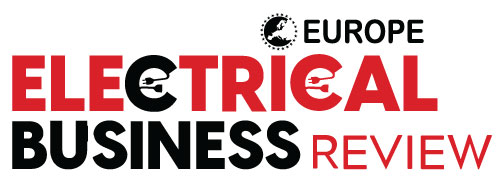Thank you for Subscribing to Electrical Business Review Weekly Brief
Recruitment Strategies for the Evolving Electrical Distribution Industry
Electrical Business Review | Wednesday, December 31, 2025
The electrical distribution industry stands at a significant crossroads, marked by rapid technological advancements, an increasing demand for renewable energy, and an urgent requirement for skilled labor. As organizations seek to adapt their workforce to these evolving conditions, developing effective recruitment strategies in the electrical distribution industry has become imperative.
The widening skills gap is among the foremost challenges facing the electrical distribution industry. An observable shortage of qualified professionals has become increasingly apparent as the industry undergoes transformation, propelled by the transition towards sustainable energy solutions.
Stay ahead of the industry with exclusive feature stories on the top companies, expert insights and the latest news delivered straight to your inbox. Subscribe today.
The aging workforce poses a dual challenge: not only are experienced professionals nearing retirement, but the incoming workforce lacks the necessary training and expertise to fill these critical roles. Recruitment practices are increasingly focused on bridging this gap by targeting educational programs that promote technical skills relevant to the industry. Collaborations between electrical distribution companies and technical schools, community colleges, and universities are essential in creating a pipeline of talent that can seamlessly transition into the workforce. Recruitment strategies are also evolving to appeal to a younger demographic. Many younger workers are drawn to industries that emphasize sustainability and innovation. The electrical distribution sector must market its potential for impact and stability, emphasizing its critical role in advancing clean energy initiatives and ensuring reliable service to communities.
Emphasizing Technical Proficiencies
The rapid advancement of technology within the electrical distribution sector demands a workforce with advanced technical skills. Integrating smart grids, automation, and data analytics is transforming traditional practices, creating new opportunities for increased efficiency and reliability. As such, recruitment efforts must prioritize identifying candidates with foundational skills and specialized knowledge in these emerging technologies.
Employers increasingly seek individuals capable of navigating complex systems, managing digital tools, and implementing innovative solutions to enhance service delivery. This situation underscores the need for targeted training programs and certifications to equip potential recruits with the requisite technical competencies.
Organizations that invest in skill development initiatives and offer pathways for continuous learning will be better positioned to attract and retain top talent. Furthermore, fostering an environment that encourages lifelong learning and career development can be a significant recruitment asset. By promoting opportunities for advancement and professional growth, companies can establish themselves as employers of choice for candidates aspiring to pursue dynamic and evolving career paths in electrical distribution.
Addressing Diversity and Inclusion
As the electrical distribution industry grows, fostering diversity and inclusion has become integral to recruitment strategies. A diverse workforce brings varied perspectives that can lead to more innovative solutions and better decision-making. However, underrepresentation in certain demographic groups remains a challenge within the sector. Recruitment initiatives must promote diversity by reaching out to underrepresented communities and encouraging participation in the electrical distribution field. This includes partnering with organizations that advocate for diversity and implementing mentorship programs to support minority candidates.
Furthermore, creating an inclusive work culture where all employees feel valued and empowered is essential for attracting diverse talent. Companies must actively engage in initiatives that support equal opportunities, address biases in recruitment processes, and foster an inclusive environment where different voices contribute to the company’s success. This commitment to diversity enhances the recruitment process. It solidifies the industry’s reputation as a leader in social responsibility and equitable practices, which can appeal to younger workers who prioritize these values in their career choices.
Leveraging Technology in Recruitment
Several specific technologies and tools are being adopted in recruitment practices in the electrical distribution sector to enhance efficiency and effectiveness. Applicant Tracking Systems (ATS) are commonly used to streamline the hiring process by organizing candidate applications, managing resumes, and facilitating communication. Artificial Intelligence (AI) and machine learning tools are increasingly employed for candidate screening and assessment, allowing employers to quickly identify the best fit based on skills and experience. Video interview platforms have become essential for remote interviewing, enabling organizations to connect with candidates regardless of location. Additionally, data analytics tools provide insights into hiring trends, candidate demographics, and the overall effectiveness of recruitment strategies, helping companies make data-driven decisions.
Additionally, social media and digital platforms offer innovative avenues for outreach and engagement, enabling companies to connect with potential recruits more meaningfully. Adapting to emerging technologies improves efficiency and expands the reach of recruitment efforts. By embracing digital tools and data-driven strategies, organizations in the electrical distribution sector can source diverse talent from a broader geographical area, thereby enriching their workforce.
More in News




